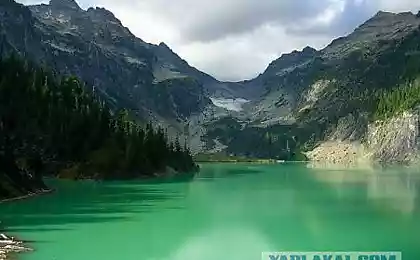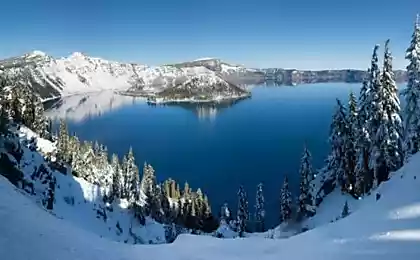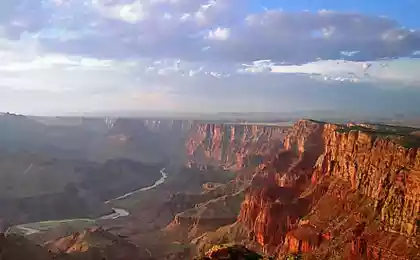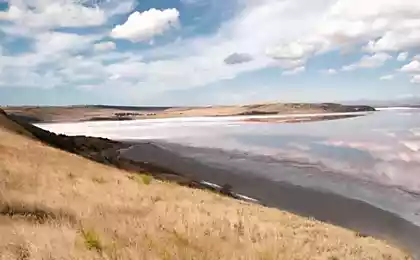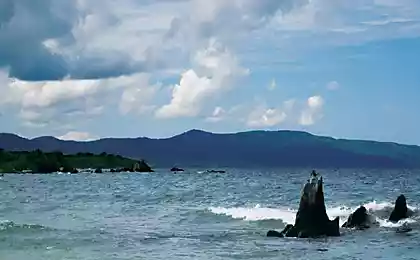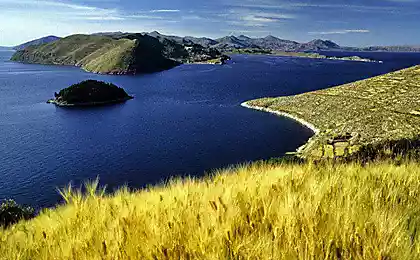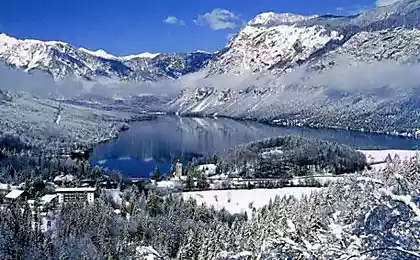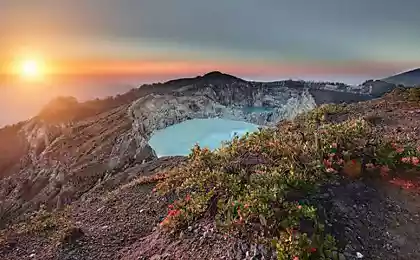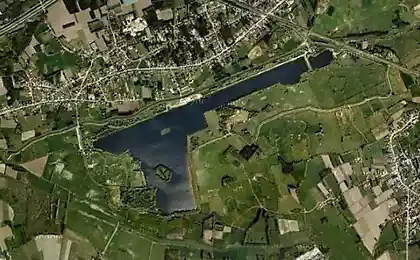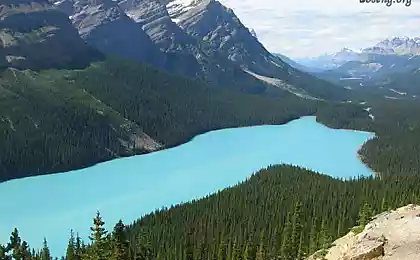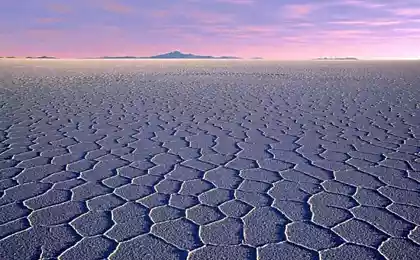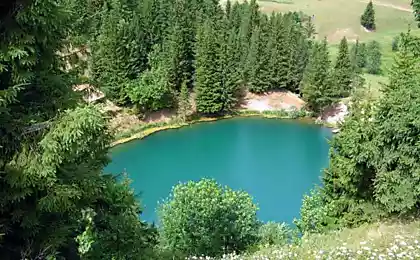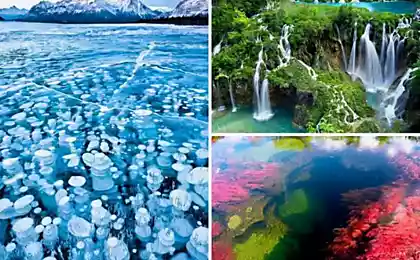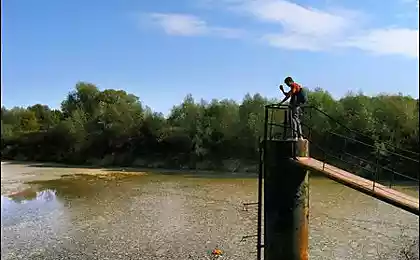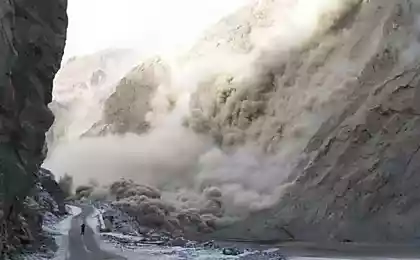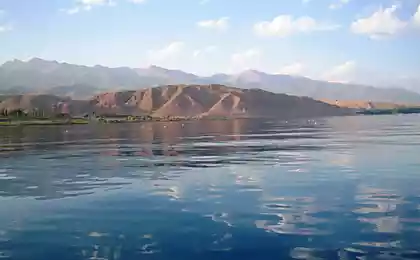2175
Lake in the heart of the Sahara Desert
In the extremely arid region of Northern Chad, where the average annual rainfall barely exceeds 2 millimeters, is a chain of 18 lakes "Lakes of Ounianga».
Lake depend on underground water flows that were formed here very long ago, when the Saharan climate was much wetter.
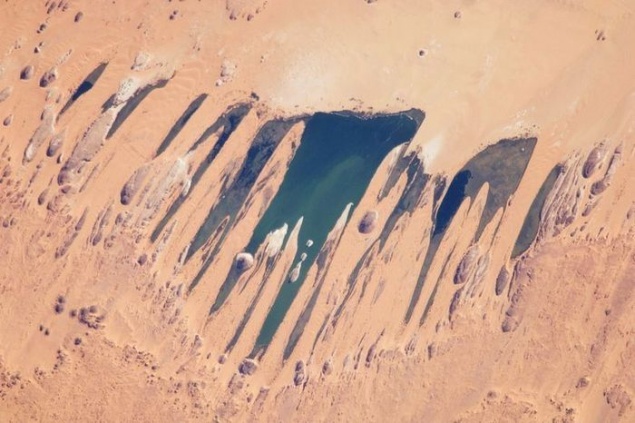
About 10 thousand years ago, this area was the only large lake in the tens of kilometers long. As the climate in recent years has changed dramatically, the lake has decreased, while expanding the dunes split it into several small ponds. 18 lakes - that's all that came to our days. This picture was taken NASA November 14, 2009:
Lakes of Ounianga lake located in the small pool at the foot of the cliffs of sandstone, where the ancient underground water flows. Despite the intense heat and a high percentage of evaporation, groundwater sources are strong enough to feed the lake water. This unique hydrological system is able to feed even the largest lakes in the world, if they were in the same arid environment.
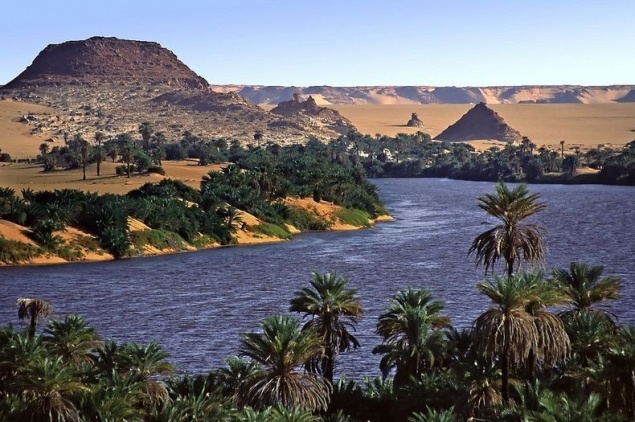
Chain Lakes Lakes of Ounianga divided into two groups located at a distance of 40 kilometers from each other. They differ in chemical composition, some of them are so salty that can support only primitive forms of life, and some new lakes provide habitat for many species. The area of the lake Teli, the largest and most biologically important, is 4.5 square kilometers and a maximum depth - 10 meters. Around it formed one of the most unusual oases in the world.
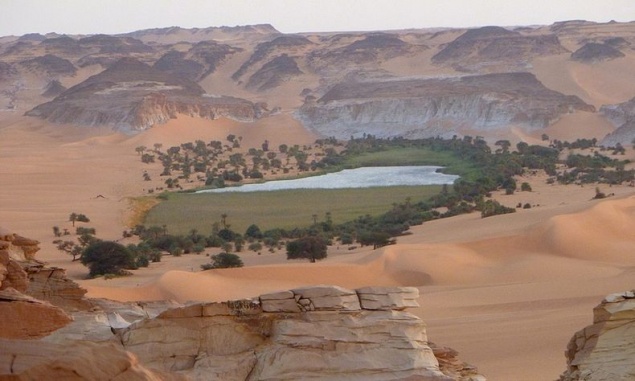
In the second group of 4 lakes have a more profound - Lakes of Ounianga Kebir, an area of 3.6 km and a depth of 27 meters. This gipersolevom pond can only live algae and some other micro-organisms. Rocks around its shores are completely covered with white salt crystals, situated near the village, home to 9,000 people.
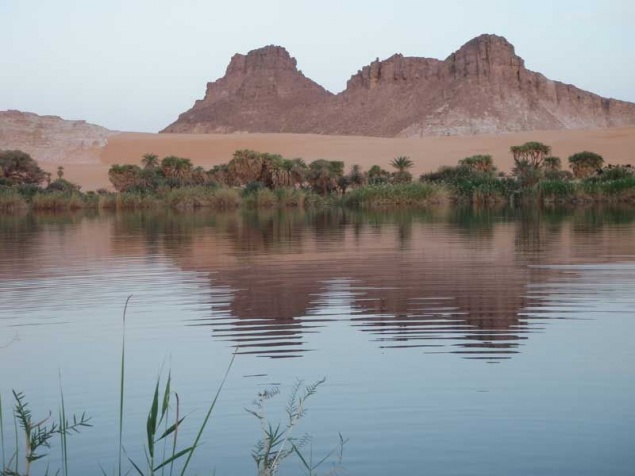
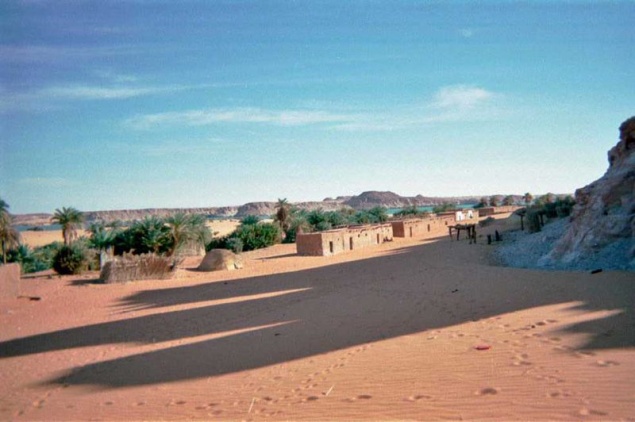
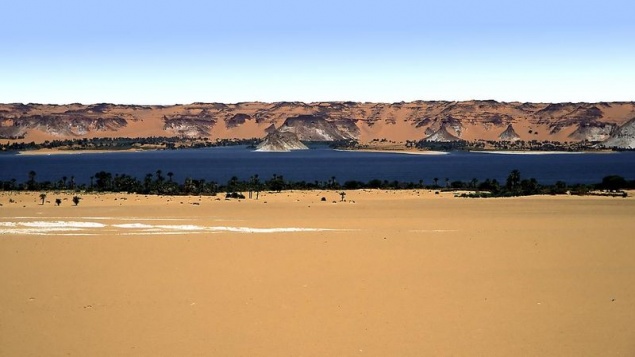
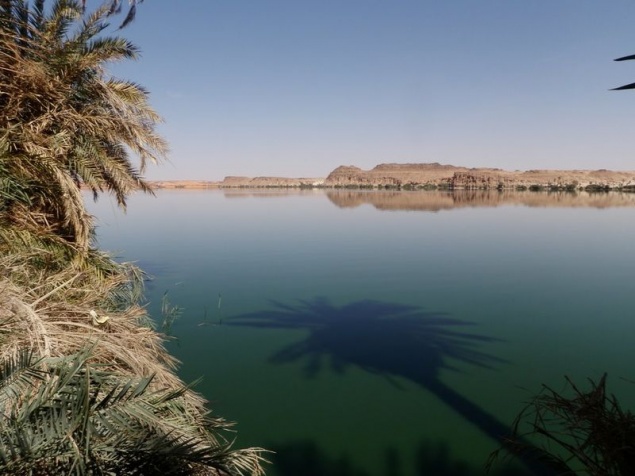
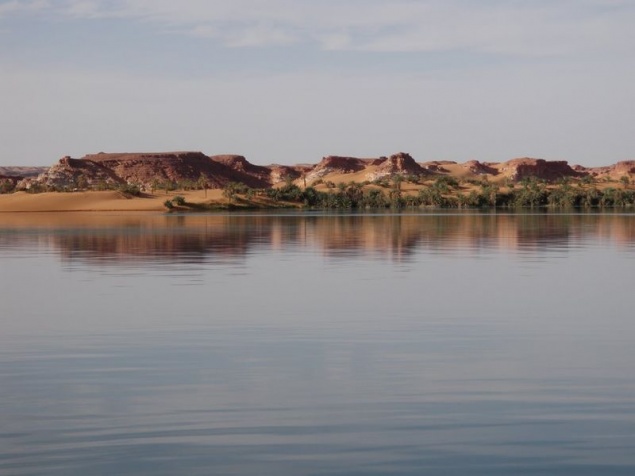
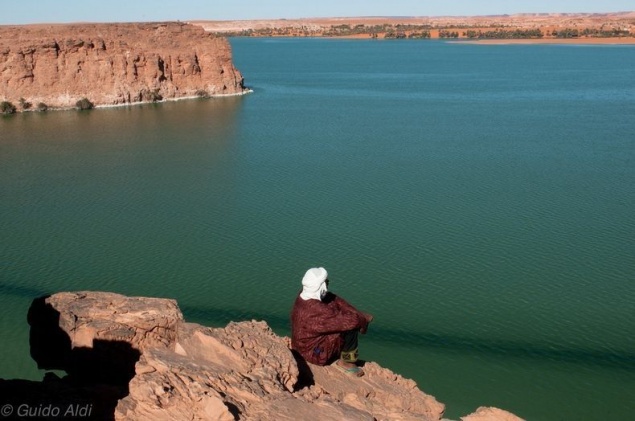
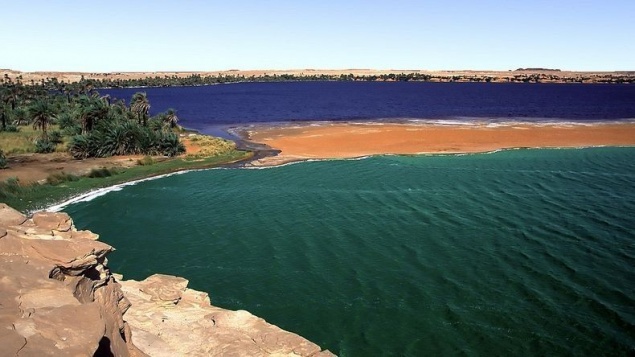
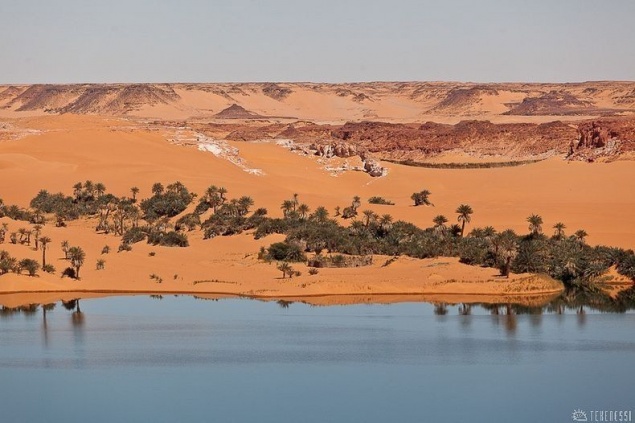
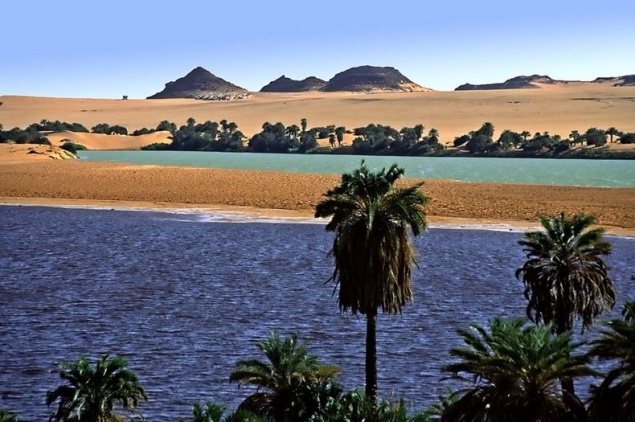
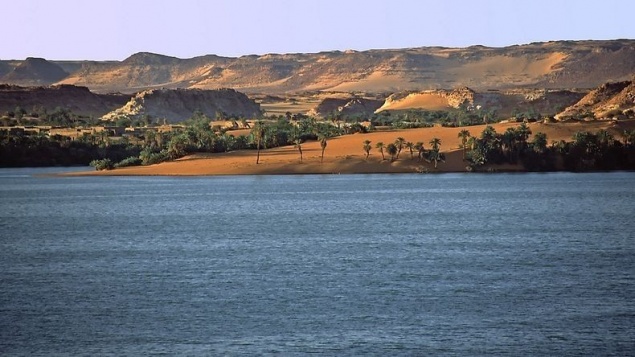
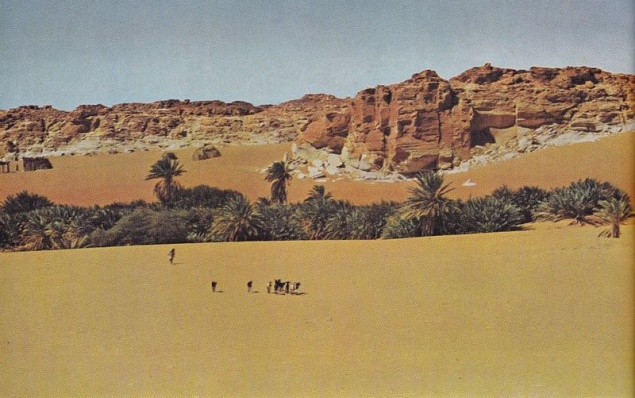
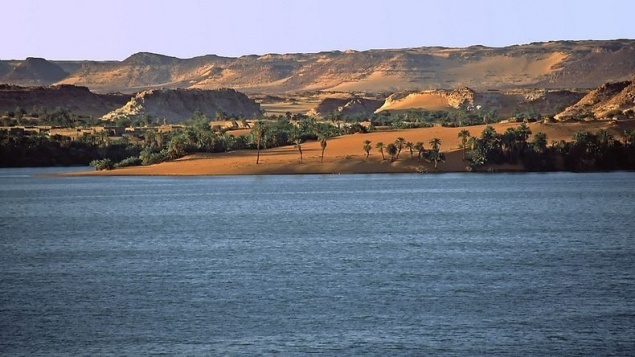
Due to the very remote location of Lake Lakes of Ounianga visit only 500 tourists a year, reshivshiesya make their way in this dangerous and remote corner of Chad in one of the most beautiful deserts in the world.
Source: lifeglobe.net
Lake depend on underground water flows that were formed here very long ago, when the Saharan climate was much wetter.

About 10 thousand years ago, this area was the only large lake in the tens of kilometers long. As the climate in recent years has changed dramatically, the lake has decreased, while expanding the dunes split it into several small ponds. 18 lakes - that's all that came to our days. This picture was taken NASA November 14, 2009:
Lakes of Ounianga lake located in the small pool at the foot of the cliffs of sandstone, where the ancient underground water flows. Despite the intense heat and a high percentage of evaporation, groundwater sources are strong enough to feed the lake water. This unique hydrological system is able to feed even the largest lakes in the world, if they were in the same arid environment.

Chain Lakes Lakes of Ounianga divided into two groups located at a distance of 40 kilometers from each other. They differ in chemical composition, some of them are so salty that can support only primitive forms of life, and some new lakes provide habitat for many species. The area of the lake Teli, the largest and most biologically important, is 4.5 square kilometers and a maximum depth - 10 meters. Around it formed one of the most unusual oases in the world.

In the second group of 4 lakes have a more profound - Lakes of Ounianga Kebir, an area of 3.6 km and a depth of 27 meters. This gipersolevom pond can only live algae and some other micro-organisms. Rocks around its shores are completely covered with white salt crystals, situated near the village, home to 9,000 people.












Due to the very remote location of Lake Lakes of Ounianga visit only 500 tourists a year, reshivshiesya make their way in this dangerous and remote corner of Chad in one of the most beautiful deserts in the world.
Source: lifeglobe.net

